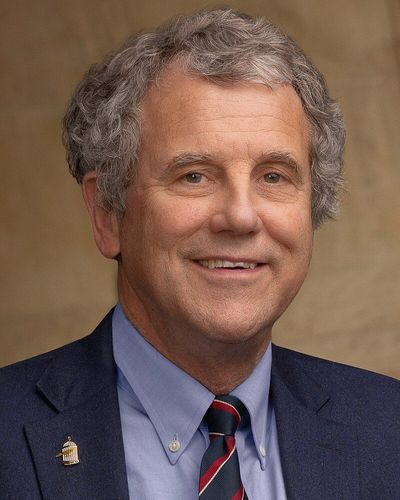Brown introduces bill to create tax credit for biobased chemicals

Sen. Sherrod Brown, D-Ohio
August 22, 2024
BY Erin Voegele
Sens. Sherrod Brown, D-Ohio, and Pete Ricketts, R-Neb., in August introduced the Renewable Chemicals Act, a bill that aims to create a tax credit to support the production of biobased chemicals.
The legislation, S. 4931, would create a targeted, short-term production tax credit of 15% of the sales price of each pound of renewable chemical produced and sold for its fair market value at retail by U.S. biochemical producers during the taxable year.
Advertisement
To be eligible for the tax credit, renewable chemicals must be produced in the U.S. and contain at last 95% biobased content. Chemicals sold for used for the production of any food, feed, fuel or pharmaceutical products would not be eligible to claim the credit.
In lieu of the production tax credit, producers could elect to take a 30% investment tax credit for qualified investments in new renewable chemical production facilities. Taxpayers would be prohibited from electing to take both credits.
Advertisement
The legislation caps the total value of the credits at $500 million, with a cap of $25 million for individual taxpayers.
“Our legislation will ensure that the United States is a global leader in creating the chemicals and bioplastics of the future – and that American workers will be the ones manufacturing them using biomass produced in America,” Brown said. “By spurring investment in the renewable chemical production, we can create jobs in this country while bolstering innovation and American energy independence.”
A full copy of the legislation is available on Brown’s website.
Related Stories
CoBank’s latest quarterly research report, released July 10, highlights current uncertainty around the implementation of three biofuel policies, RFS RVOs, small refinery exemptions (SREs) and the 45Z clean fuels production tax credit.
The U.S. Energy Information Administration maintained its forecast for 2025 and 2026 biodiesel, renewable diesel and sustainable aviation fuel (SAF) production in its latest Short-Term Energy Outlook, released July 8.
XCF Global Inc. on July 10 shared its strategic plan to invest close to $1 billion in developing a network of SAF production facilities, expanding its U.S. footprint, and advancing its international growth strategy.
U.S. fuel ethanol capacity fell slightly in April, while biodiesel and renewable diesel capacity held steady, according to data released by the U.S. EIA on June 30. Feedstock consumption was down when compared to the previous month.
XCF Global Inc. on July 8 provided a production update on its flagship New Rise Reno facility, underscoring that the plant has successfully produced SAF, renewable diesel, and renewable naphtha during its initial ramp-up.
Upcoming Events










